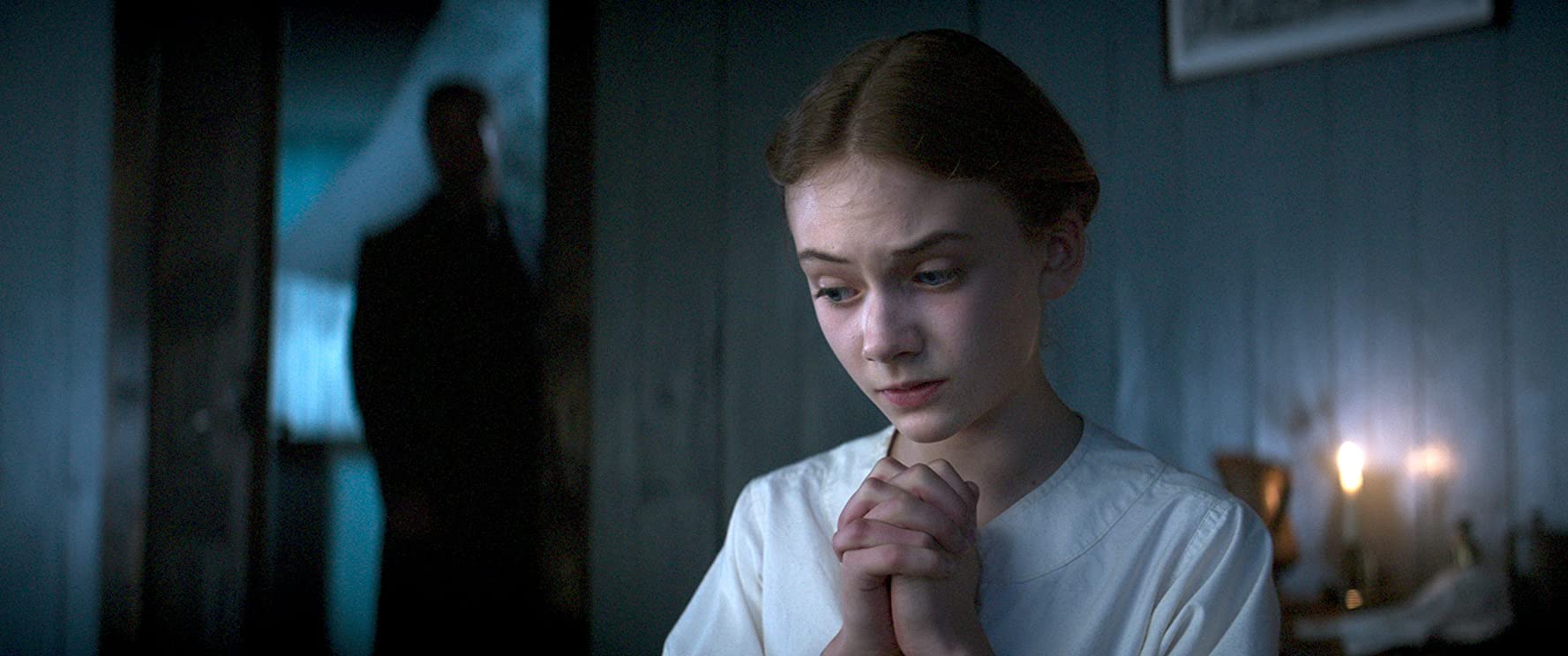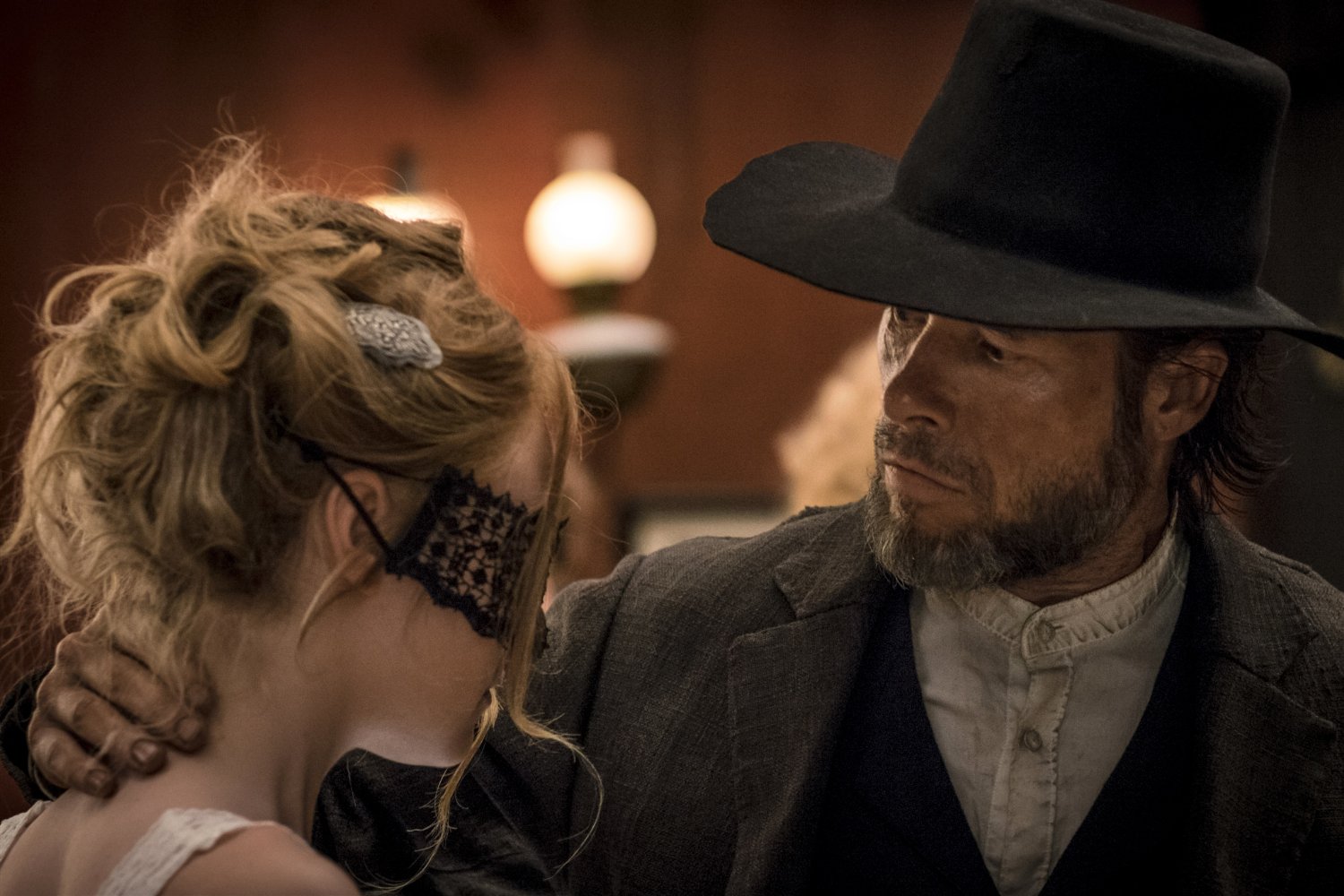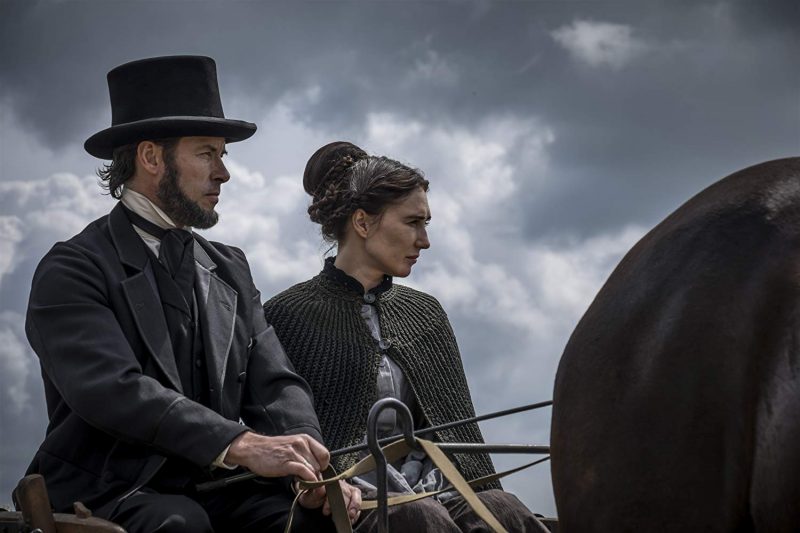Among the many outstanding films of 2017, Brimstone stands out as one that demands significant attention. Its production narrative and the film’s own storyline are of a cinematic ilk seldom seen on the big screen. Brimstone, a movie I unhesitatingly included in my list of the year’s finest films, should unquestionably find its place among the films you must watch. According to numerous magazines, this project that director Martin Koolhoven tirelessly pursued for five years is considered one of the best films made in Europe in 2017 and also held the title of the best film of the year in its home country, the Netherlands.
Regarding its subject matter, it’s a Western tale that delves into the torment inflicted by an excessively devout father upon his daughter. Often referred to as a Dutch Western, this film presents harsh scenes that scrutinize a woman’s place in society and the extremes of religious fervor. A deranged clergyman, selling the tranquility of religion to all within the church, subjects his wife and, especially, his daughter to unspeakable cruelty at home. The father, who considers his actions righteous, justifies the pain he inflicts by aligning it with his faith. Unable to endure the torture any longer, the daughter resolves to escape one day, only to find that life outside is no different from the torment she left behind. Forced to become a prostitute to survive and make a living, she believes herself to be in the midst of her own personal hell. However, one day, her father reemerges, and the actual inferno begins. The father is determined not to depart from this world without passing judgment on his daughter, according to his own twisted sense of justice.

The film boasts a formidable ensemble cast, including luminaries such as Guy Pearce, Kit Harington, Dakota Fanning, Emilia Jones, and Carice van Houten, and is visually impressive in its execution. Notably, it holds the distinction of being the second most expensive film ever produced in the Netherlands. The tale of its production is, to say the least, fraught with tribulations. Originally intended to be led by Mia Wasikowska, she withdrew from her role due to exhaustion. Subsequently, when the film’s producers also departed from the project, the film teetered on the precipice of abandonment. However, through the assistance of the lead actor, Guy Pearce, the film managed to secure the resources required for production and fulfill director Martin Koolhoven’s five-year-long dream. Pearce’s motivation for lending his aid was his profound admiration for the script’s strength. Additionally, Robert Pattinson, originally slated to participate in the film, withdrew, making way for Kit Harington, who was available following his role in Game of Thrones. Pattinson later expressed remorse for his departure. Amid the tumultuous filming process, the only bright spot was the blossoming relationship between Guy Pearce and Carice van Houten, who regrettably missed the film’s premiere due to the birth of their child.
The film, both in its direction and visual aesthetics, is notably accomplished, offering a raw and unvarnished portrayal of the era. It unflinchingly reflects the perspectives of society and religion regarding women in their harshest forms. One of the most profound ironies in the film is embodied by Guy Pearce’s portrayal of a devout man who, despite his faith, exhibits unbridled ferocity in his role as the antagonist. The central conundrum raised in the film revolves around the notion of an individual who harbors aspirations of paradise but brings nothing short of hell to those around him and even sacrifices lives in the process. Throughout the film, it becomes evident that the justice enforced by a man who is not moral but rather self-righteous, filling the voids of his professed faith, becomes a haunting nightmare for everyone. The father undergoes a transformation, evolving into an indomitable figure empowered by his unwavering belief. Moreover, he exploits his immunity, capitalizing on the hesitation of the era’s patriarchs to challenge his authority.
I have always had an affinity for films like Brimstone, especially those that shatter the dreams of those who dwell in the modern metropolis while harboring nostalgia for the past. Movies that bring the stark reality crashing down upon the fantasies of such individuals will forever hold a special place in my heart. Brimstone, a film that brutally unfolds the nightmare born from the unholy fusion of an untouchable patriarch and an extreme religious fervor, at times transforms into a challenging cinematic experience. The cornerstone of the film’s success, however, lies in the unwavering commitment of Guy Pearce, who delivers one of the most accomplished performances seen on screen in years with his portrayal of the unhinged paternal figure; he manages to carry the entire film with his palpable loathing.

The film, which encompasses numerous supporting characters and their narratives, offers a narrative that flows with temporal shifts rather than a straightforward progression, enhancing its fictional appeal. Nevertheless, what indeed tightens the grip of the narrative is the strength of its story. Regardless of the era one ventures into, two elements in the film remain constant: the brutality of fervent belief and society’s assignment of the harlot role to women. The film’s length stems from its desire to effectively convey these unsettling emotions to the audience.
In essence, Brimstone is a striking film that demands your attention, delving into the cruelty of religion and the role of women in society. I implore you to engage in empathy as you watch it. I want you to imagine yourself as a woman in an era where you are considered insignificant, caught between a man who tortures you in the name of God and a male-dominated society that views you as a harlot. Then, contemplate the perpetual fear that things can always get worse as you attempt to adapt. Director Martin Koolhoven’s five-year wait for this film was not in vain. To watch it and praise it is my obligation in recognition of the time he sacrificed, and the film is deserving of such commendation.

Cast & Crew
director: Martin Koolhoven
writers: Martin Koolhoven
starring: Guy Pearce, Dakota Fanning, Carice van Houten, Kit Harington, Emilia Jones
UK – BELGIUM – FRANCE – NETHERLANDS – SWEDEN – GERMANY | 2016 | 148 MINUTES |
